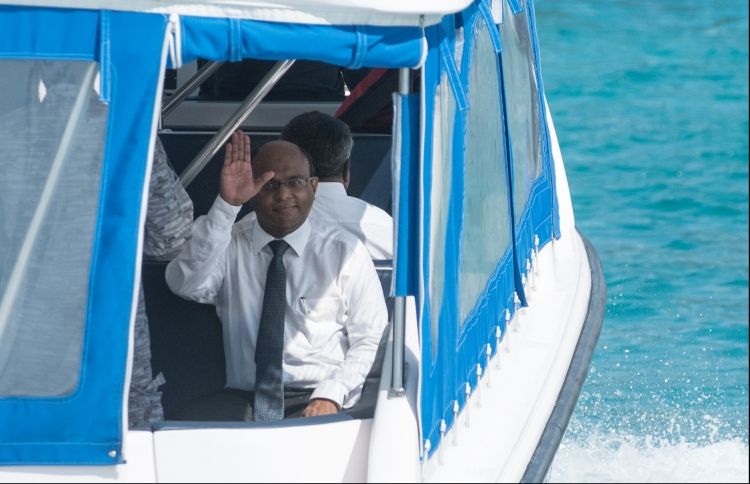Chief justice slams ‘baseless terrorism charge’
Abdulla Saeed is accused of unduly using his influence as chief justice to overthrow the government by putting national security and public safety at risk.

01 May 2018, 09:00
Chief Justice Abdulla Saeed has denied the “baseless” terrorism charge over an alleged plot to topple the government, local media reported.
The charge sheet was read out at Monday night’s pretrial hearing.
Saeed is accused of unduly using his influence as chief justice to overthrow the government by putting national security and public safety at risk. He is also accused of accepting bribes to issue the February 1 Supreme Court order for the release of nine political prisoners.
Defence attorneys argued the charge cannot be pressed under the anti-terror law as he is accused of attempting to topple the government.
Become a member
Get full access to our archive and personalise your experience.
Already a member?
Discussion
No comments yet. Be the first to share your thoughts!
No comments yet. Be the first to join the conversation!
Join the Conversation
Sign in to share your thoughts under an alias and take part in the discussion. Independent journalism thrives on open, respectful debate — your voice matters.




